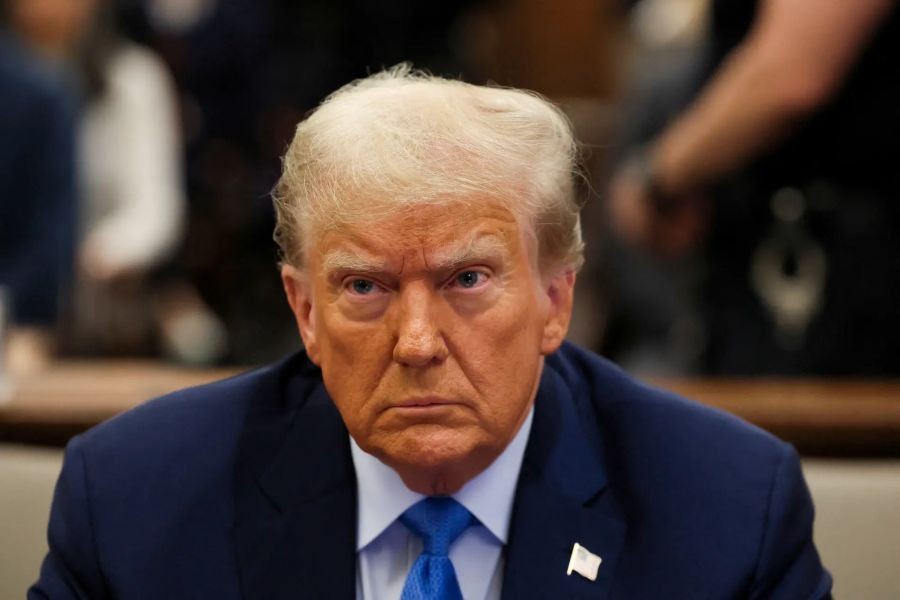The allure of Donald Trump among Australian supporters is a multifaceted phenomenon that intertwines global political dynamics with local cultural and economic contexts. The interest in Trump reflects broader trends in global populism and political personality cults, but also taps into specific economic and investment-related concerns that resonate with certain Australian demographics.
Understanding the Appeal: Global and Local Context
Globally, Donald Trump epitomizes a brand of politics that emphasizes nationalism, economic protectionism, and a brash leadership style. These attributes have resonated with segments of the Australian public who feel disconnected from traditional political elites. In Australia, this sentiment is often fueled by concerns over economic management, immigration, and national sovereignty—issues that have been at the forefront of Australian politics.
According to the Australian Bureau of Statistics (ABS), Australia’s GDP grew by 2.2% in 2023, but income inequality remains a pressing issue. This economic backdrop creates fertile ground for populist rhetoric, which promises to address economic disparities through bold, often controversial, measures.
Economic Factors Driving Support
Economic anxiety is a significant driver of Trump support in Australia. With property prices soaring—Sydney property prices rose by 12% in 2024 (Source: CoreLogic)—many Australians find themselves priced out of the housing market. Trump’s economic policies, which include tax cuts and deregulation, are perceived by some as solutions that could spur similar policies in Australia, potentially leading to greater economic opportunities and investment returns.
Additionally, the Reserve Bank of Australia (RBA) has highlighted the potential risks of rising interest rates, which could further strain household budgets. Trump’s approach to economic management, which prioritizes growth over regulation, is appealing to those who are concerned about their financial future.
Case Study: The Impact of Populism on Australian Property Investment
To illustrate the impact of political trends on property investment, consider the case of a Sydney-based property developer who capitalized on the populist wave. This developer, recognizing the growing discontent with traditional investment channels, pivoted to offering more accessible investment opportunities in regional areas where growth potential was higher yet underappreciated.
Problem:
The developer faced stagnant growth in urban property due to high entry costs and limited affordability for average Australians. Many potential investors were skeptical of the traditional urban markets due to overvaluation and saturation.
Action:
By leveraging populist sentiments that favored decentralization and regional development, the developer shifted focus to regional property markets. This included offering fractional ownership models to reduce barriers to entry, thereby aligning with populist calls for more equitable economic opportunities.
Result:
Within 18 months, the developer saw a 30% increase in investment from first-time property investors and a 15% increase in property value in targeted regions. This success underscored the viability of alternative investment strategies that align with broader political and economic sentiments.
Takeaway:
This case study demonstrates that understanding political and economic trends can provide unique opportunities in property investment. Investors who align their strategies with these trends can tap into new markets and achieve significant returns.
Debunking Myths: Common Misconceptions About Trump Support in Australia
- Myth: Trump supporters in Australia are uneducated or uninformed.
- Reality: Research from the University of Sydney indicates that Trump supporters span various education levels and demographics, often driven by economic concerns and a desire for political reform.
- Myth: Supporting Trump means rejecting Australian values.
- Reality: Many supporters argue that their stance is about prioritizing national interests and economic growth, values they believe are inherently Australian.
Future Outlook: Trends and Predictions
Looking ahead, the influence of global populism on Australian politics and investment is expected to grow. According to a Deloitte report, by 2026, there could be a significant shift in policy focus towards more protectionist and growth-centric economic strategies, potentially affecting property investment and market dynamics.
Moreover, as digital platforms continue to shape political discourse, the impact of charismatic leaders like Trump may become more pronounced, influencing investment trends and economic policies in Australia.
Final Takeaways
- Understanding political trends is crucial for strategic property investment in Australia.
- Economic concerns drive support for populist figures like Trump, offering insights into market opportunities.
- Aligning investment strategies with broader political sentiments can yield significant returns.
What’s Next? As political landscapes evolve, staying informed on both global and local trends is essential for making savvy investment decisions. Engage with industry experts and leverage insights from economic reports to navigate these complex dynamics effectively.
People Also Ask
- How does Trump's influence impact Australian businesses? Trump's policies often emphasize deregulation and economic nationalism, which can inspire similar approaches in Australia, potentially benefiting local industries seeking less restrictive regulatory environments.
- What are the biggest misconceptions about Trump support in Australia? A common myth is that Trump supporters are uninformed, but studies show they often have legitimate economic concerns influencing their political preferences.
Related Search Queries
- Why do Australians support Trump?
- Impact of Trump on Australian politics
- Trump's economic policies and Australia
- Populism in Australian politics
- Australian property investment trends 2024

































christeltruong
9 months ago